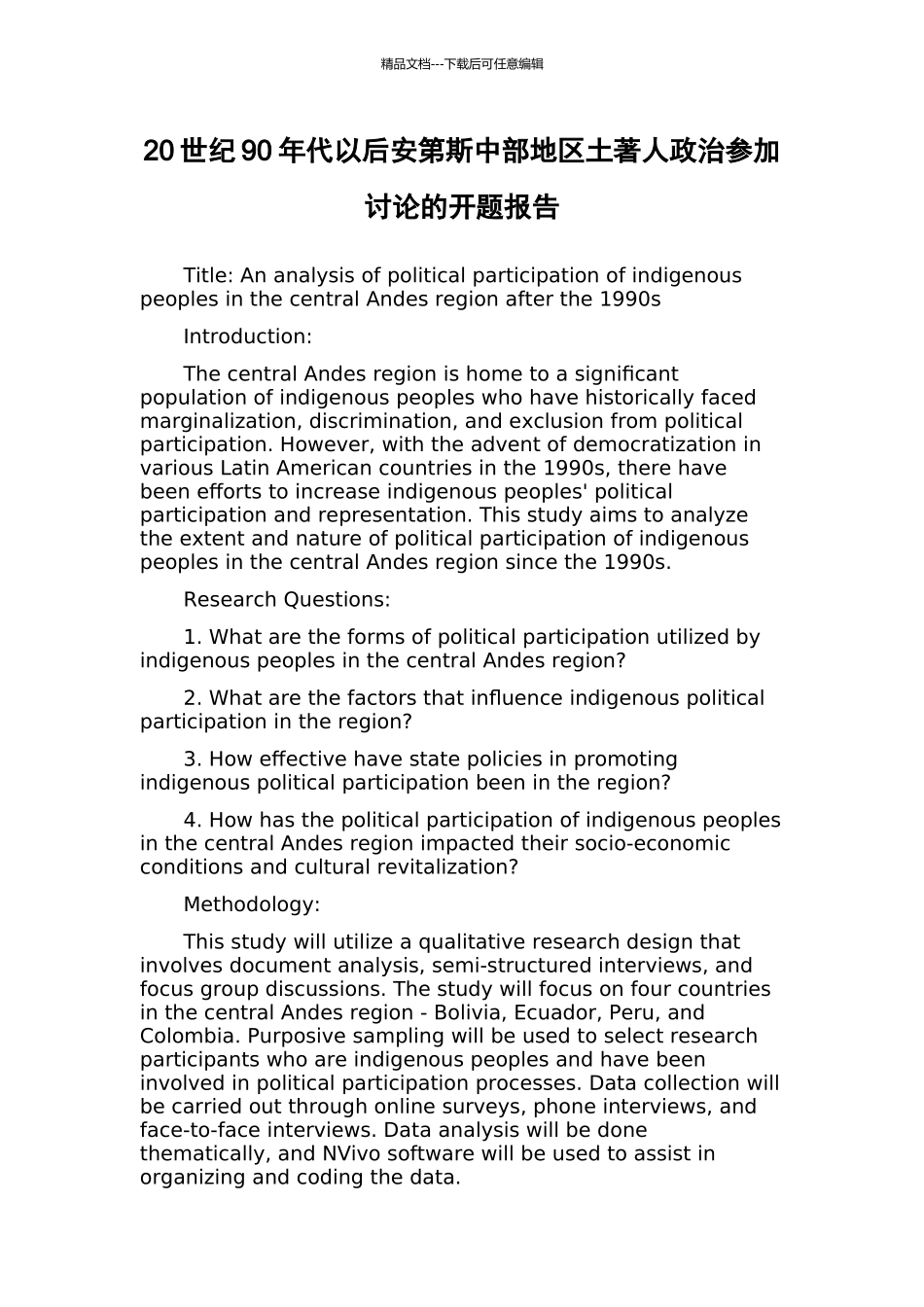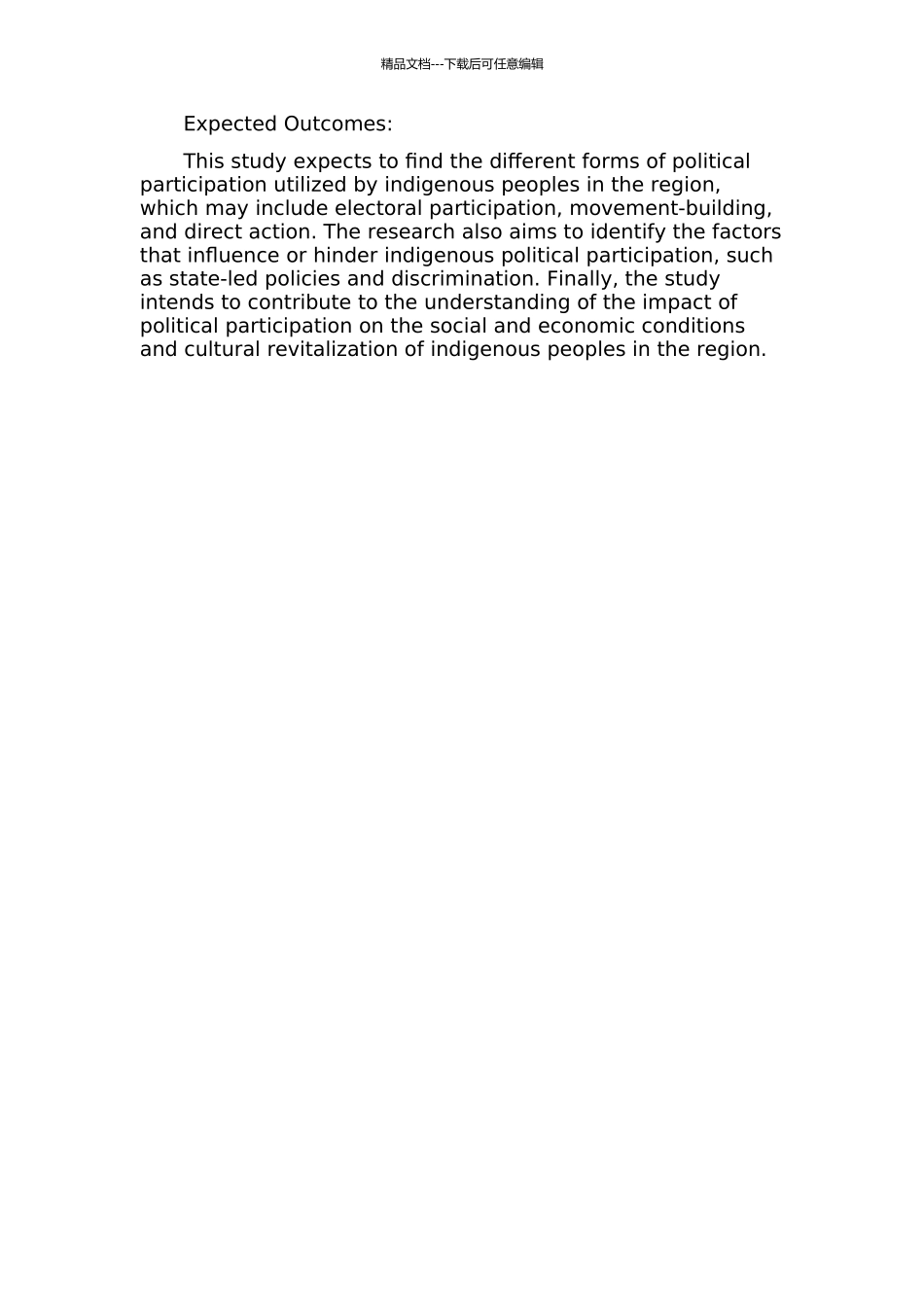精品文档---下载后可任意编辑20 世纪 90 年代以后安第斯中部地区土著人政治参加讨论的开题报告Title: An analysis of political participation of indigenous peoples in the central Andes region after the 1990sIntroduction:The central Andes region is home to a significant population of indigenous peoples who have historically faced marginalization, discrimination, and exclusion from political participation. However, with the advent of democratization in various Latin American countries in the 1990s, there have been efforts to increase indigenous peoples' political participation and representation. This study aims to analyze the extent and nature of political participation of indigenous peoples in the central Andes region since the 1990s.Research Questions:1. What are the forms of political participation utilized by indigenous peoples in the central Andes region?2. What are the factors that influence indigenous political participation in the region?3. How effective have state policies in promoting indigenous political participation been in the region?4. How has the political participation of indigenous peoples in the central Andes region impacted their socio-economic conditions and cultural revitalization?Methodology:This study will utilize a qualitative research design that involves document analysis, semi-structured interviews, and focus group discussions. The study will focus on four countries in the central Andes region - Bolivia, Ecuador, Peru, and Colombia. Purposive sampling will be used to select research participants who are indigenous peoples and have been involved in political participation processes. Data collection will be carried out through online surveys, phone interviews, and face-to-face interviews. Data analysis will be done thematically, and NVivo software will be used to assist in organizing and coding the data.精品文档---下载后可任意编辑Expected Outcomes:This study expects to find the different forms of political participation utilized by indigenous peoples in the region, which may include electoral participation, movement-building, and direct action. The research also aims to identify the factors that influence or hinder indigenous political participation, such as state-led policies and discrimination. Finally, the study intends to contribute to the understanding of the impact of political participation on the social and economic conditions and cultural revitalization of indigenous peoples in the region.

